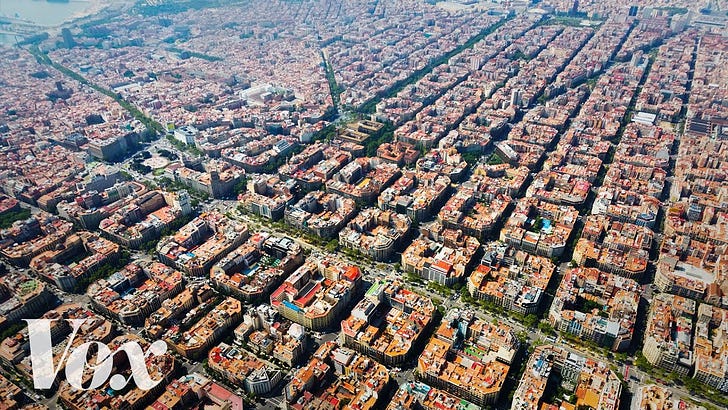Episode #59: Why cities need Transformational Adaptation and what it could mean for urban ecosystems
Podcast episode and companion blog post
Climate change is causing local weather patterns and ecosystems to shift and transform. In order to thrive in this new climate era, we will need to transform our cities and urban ecosystems. This is called 'Transformational Adaptation'.
My co-host today is Giulia Mori and in this episode we discuss:
What is Transformational Adaptation and why we need it
How ecosystems are transforming due to climate change
2 case studies of transformation and what we can learn from them
Some thoughts on how we could reimagine urban parks for the future
This episode is based on some recent thinking in Academia (references below) so I would love to hear from those of you working in practice. What are possibilities of transformational adaptation? What do you think about transforming urban ecosystems and parks?
The episode is also available on Spotify, Apple Podcasts and other apps. Check out the back catalogue at greenurbanistpod.com.
Barcelona Superblocks
We discuss the Barcelona Superblocks project as a potential example of Transformational Adaptation. I describe the project in words but there is no substitute for seeing it graphically. This video from Vox explains it well:
This article highlights some of the resistance from residents and local businesses and the need for a more participatory process: https://www.citiesforum.org/news/superblock-superilla-barcelona-a-city-redefined/
More info at the surprisingly slick Barcelona municipality website: https://www.barcelona.cat/pla-superilla-barcelona/en
Here are some photos from the pilot Superblocks. These look more like tactical urbanism (cheap and reversible intervention) than a public realm transformation. However, I think that is on purpose to test out the idea before finalising the design. What do you think?



Bibliography
Key Reference:
Colloff, M.J., Wise, R.M., Palomo, I., Lavorel, S. and Pascual, U. (2020) ‘Nature’s contribution to adaptation: insights from examples of the transformation of social-ecological systems’, Ecosystems and People, 16(1), pp. 137–150. Available at: https://doi.org/10.1080/26395916.2020.1754919.
Barcelona Case Study:
Zografos, C., Klause, K.A., Connolly, J.J.T. and Anguelovski, I. (2020) ‘The everyday politics of urban transformational adaptation: Struggles for authority and the Barcelona superblock project’, Cities, 99, p. 102613. Available at: https://doi.org/10.1016/j.cities.2020.102613
Select bibliography of other relevant papers:
Brown, R.D., Vanos, J., Kenny, N. and Lenzholzer, S. (2015) ‘Designing urban parks that ameliorate the effects of climate change’, Landscape and Urban Planning, 138, pp. 118–131. Available at: https://doi.org/10.1016/j.landurbplan.2015.02.006.
Burley, H., Beaumont, L.J., Ossola, A., Baumgartner, J.B., Gallagher, R., Laffan, S., Esperon-Rodriguez, M., Manea, A. and Leishman, M.R. (2019) ‘Substantial declines in urban tree habitat predicted under climate change’, Science of The Total Environment, 685, pp. 451–462. Available at: https://doi.org/10.1016/j.scitotenv.2019.05.287.
Esperon-Rodriguez, M., Ordoñez, C., van Doorn, N.S., Hirons, A. and Messier, C. (2022) ‘Using climate analogues and vulnerability metrics to inform urban tree species selection in a changing climate: The case for Canadian cities’, Landscape and Urban Planning, 228, p. 104578. Available at: https://doi.org/10.1016/j.landurbplan.2022.104578.
Gill, S.E., Handley, J.F., Ennos, A.R. and Pauleit, S. (2007) ‘Adapting Cities for Climate Change: The Role of the Green Infrastructure’, Built Environment, 33(1), pp. 115–133. Available at: https://doi.org/10.2148/benv.33.1.115.



